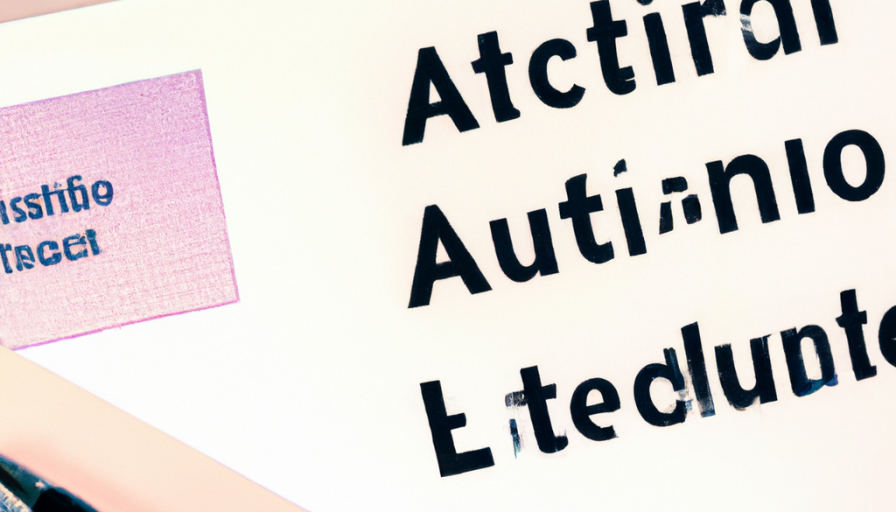AI Powered Automation for Compliance
Artificial Intelligence (AI) has revolutionized various industries, from healthcare to manufacturing, and now it is making a significant impact on compliance processes. AI-powered automation for compliance is transforming the way organizations manage and ensure regulatory adherence. By leveraging advanced algorithms and machine learning capabilities, AI systems can streamline compliance workflows, enhance accuracy, and improve overall efficiency. In this article, we will explore the benefits and applications of AI-powered automation for compliance.
Benefits of AI Powered Automation for Compliance
-
Enhanced Accuracy: AI-powered automation eliminates the potential for human error in compliance processes. Machines can analyze vast amounts of data with precision, minimizing the risk of oversight or misinterpretation.
-
Improved Efficiency: AI systems can automate repetitive compliance tasks, freeing up valuable time for compliance professionals to focus on more strategic initiatives. This increased efficiency allows organizations to allocate their resources more effectively.
-
Real-time Monitoring and Alerts: AI algorithms can continuously monitor data sources and identify compliance issues in real-time. This proactive approach helps organizations address potential problems before they escalate, reducing the chances of compliance breaches.
-
Cost Savings: By automating compliance processes, organizations can significantly reduce costs associated with manual labor, paperwork, and potential penalties. AI-powered automation offers a cost-effective solution for ensuring compliance while minimizing financial risks.
-
Data Insights and Analytics: AI systems can analyze large volumes of compliance-related data to identify patterns, trends, and potential areas of risk. These insights enable organizations to make data-driven decisions and implement proactive measures to mitigate compliance issues.
Applications of AI Powered Automation for Compliance
-
Risk Assessment and Due Diligence: AI systems can analyze extensive data sets, including regulatory requirements, industry standards, and organizational policies, to evaluate compliance risks. This enables organizations to identify potential vulnerabilities and implement robust risk mitigation strategies.
-
Contract Review and Analysis: AI-powered automation can review and analyze legal contracts, identifying potential compliance issues, ambiguous clauses, and inconsistencies. This automation saves time and effort for legal professionals and ensures contracts meet all necessary compliance standards.
-
Monitoring and Auditing: AI algorithms can continuously monitor internal systems, external data sources, and regulatory changes to detect any non-compliant activities. By automating monitoring and auditing processes, organizations can identify and address potential compliance breaches promptly.
-
Regulatory Reporting: AI-powered automation can streamline the process of generating regulatory reports by automatically extracting relevant data, analyzing it, and generating accurate and comprehensive reports. This reduces the burden on compliance teams and ensures timely and compliant reporting.
-
Training and Education: AI systems can assist in training and educating employees on compliance requirements and best practices. These systems can deliver personalized training modules, quizzes, and simulations to enhance employees’ understanding of compliance regulations.
Overcoming Challenges and Ensuring Ethical Use of AI
While AI-powered automation offers significant benefits for compliance, certain challenges and ethical considerations must be addressed. These include:
-
Data Privacy and Security: Organizations must ensure that sensitive compliance-related data is adequately protected from unauthorized access or breaches. Strong cybersecurity measures and compliance with data protection regulations are crucial.
-
Explainability and Transparency: AI algorithms should be designed in a way that their decision-making process and results are explainable and transparent. This enhances trust and allows compliance professionals to verify the accuracy and fairness of AI-generated outputs.
-
Human Oversight and Intervention: While AI can automate many compliance processes, human oversight and intervention are still essential. Compliance experts need to validate AI-generated results, make critical decisions, and ensure ethical use of AI systems.
-
Continuous Improvement and Adaptability: AI systems must be continuously updated and improved to keep up with evolving regulations and compliance requirements. Regular monitoring and maintenance are necessary to ensure the accuracy and effectiveness of AI-powered automation.
In conclusion, AI-powered automation for compliance offers numerous benefits, including enhanced accuracy, improved efficiency, real-time monitoring, cost savings, and valuable data insights. By applying AI algorithms in risk assessment, contract review, monitoring, regulatory reporting, and training, organizations can streamline compliance processes and ensure adherence to regulatory standards. However, it is crucial to address challenges related to data privacy, explainability, human oversight, and continuous improvement to fully leverage the potential of AI-powered automation for compliance.


